AFL legend Mick Malthouse analyses the AFL’s inaccuracy issues
Goalkicking is where the AFL’s heroes and villains are made all season, yet recently there have been more villains that heroes like Dan Houston. Mick Malthouse analyses where the issues lie.
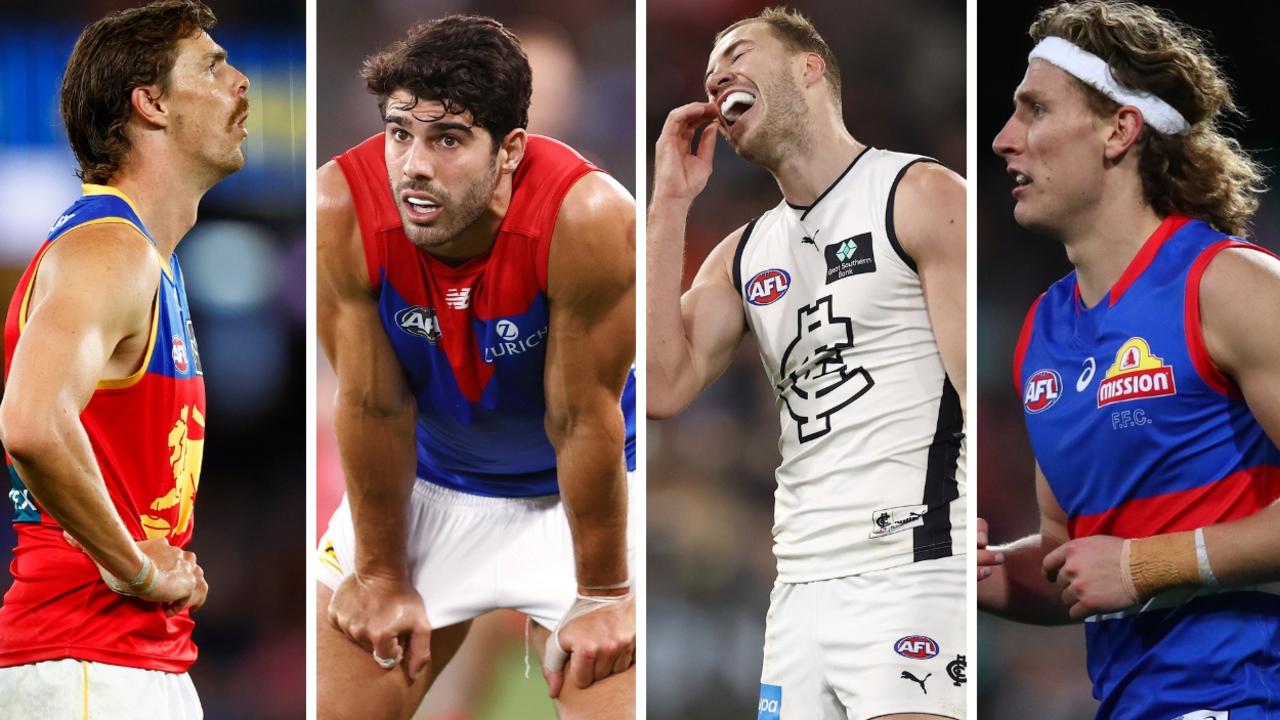
Why is a 6.4m gap such a conundrum?
Heroes are made by kicking the football through that slot, and villains are cast by missing it.
You always remember the ones who make it – think, Dan Houston from outside 50m in the wet at the MCG after the siren against Essendon last round. His goal not only won the match, but maintained Port’s decisive advantage over the Brisbane Lions on the ladder, and kept them in touch with Collingwood on top.
You also remember the ones who miss. Think, Isaac Heeney failing to capitalise on Sydney’s first-quarter dominance over Geelong, by spraying his first two set-shots in almost identical fashion, missing everything within the 19-metre-wide arc of the goal posts. And who, in his last shot when trailing in the final seconds of the match, snapped and missed again to draw the game. It cost Sydney the win and the chance to keep its finals hopes alive.
It seems cruel to blame one player. But the reality is that the responsibility rests fairly and squarely with the player who is a professional athlete and has hours and hours to work on their trade, and comes up short when the time counts.
That kick – early or late in the game – can lead to heartache or jubilation.
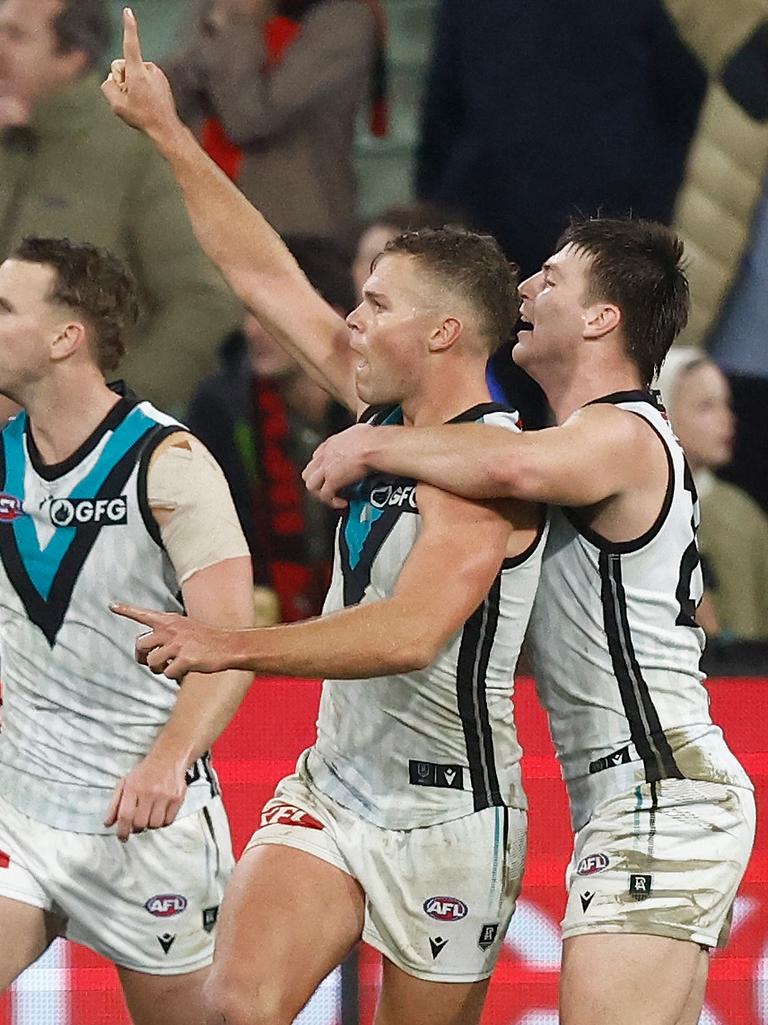
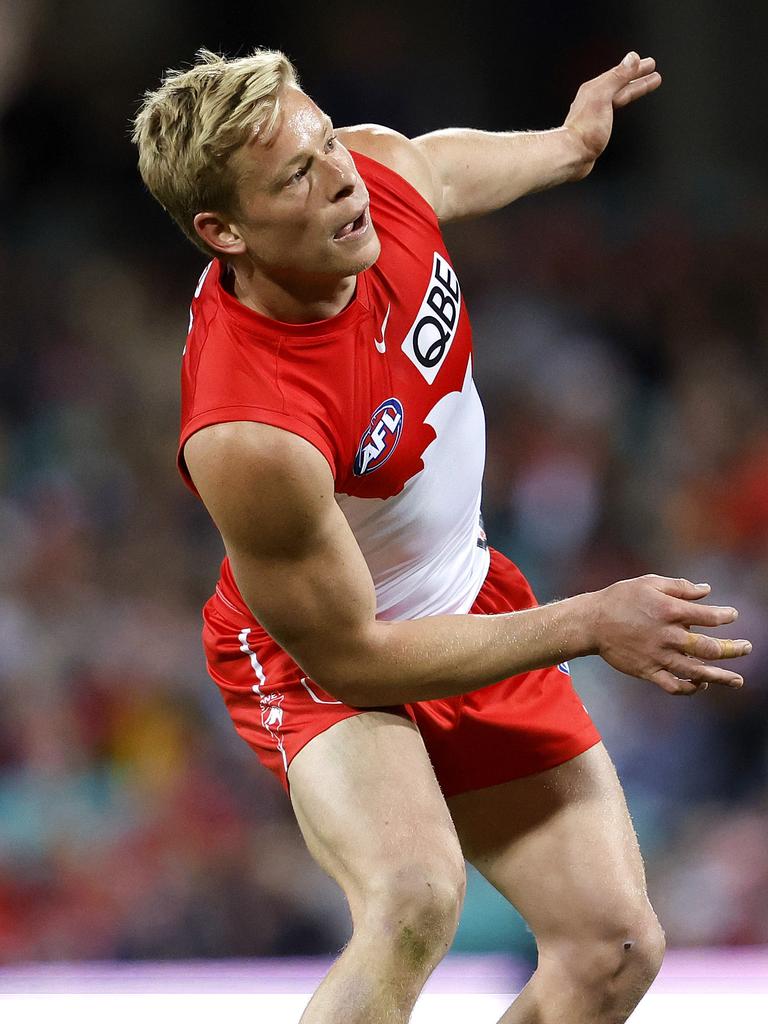
Houston and Heeney both wanted to kick goals, but the ramifications are so great that sometimes the player gets tied up mentally which causes him to physically miss the million-dollar putt.
To kick it means to stick to your script, which comes from planning and preparation and practice.
Fremantle assistant coach, Jaymie Graham is quoted as saying it’s a fluke that Josh Kennedy misses. Because he practised his art of goalkicking out on the track long after every other player had finished training, every single session.
His stuttering run up was mocked by some, but it worked for him. And by sticking to it, he won two Coleman medals and kicked 723 goals in his career with 66 per cent accuracy. Just behind the unbelievable Tony Lockett with 70 per cent, the great Peter Hudson with 69 per cent, and consistent small-forward Luke Breust with 68 per cent.
Snap shots under pressure, boundary shots from around the corner, there’s a big element of luck involved in those goals.
But set shots within range give the player the chance to adhere to their own methodology – the angle to come in on, a regimented number of steps, how they hold and drop the ball, whether they are aiming at the goal umpire’s hat or someone in the crowd. It’s all in how they practice. Hudson kicked a flat punt, Lockett a drop punt.
It is bemusing when what they practice goes out the window with the pressure of the game, and they wonder why they miss. Even more bemusing when they don’t learn from their first mistake – misreading the wind for example – and repeat it.
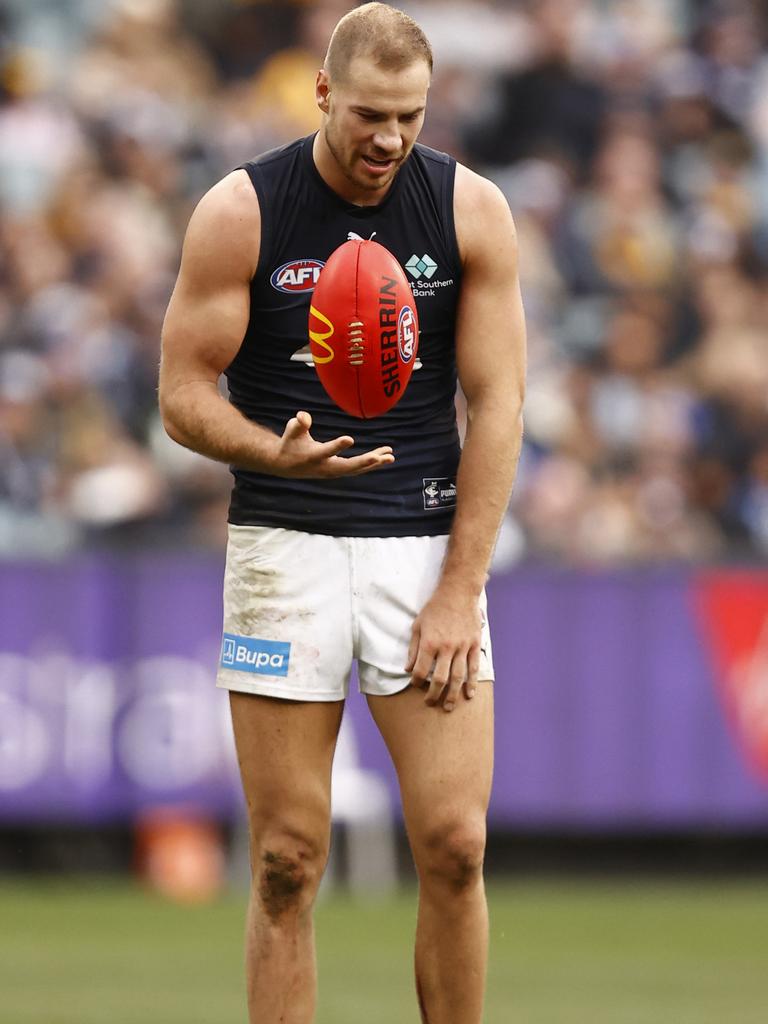
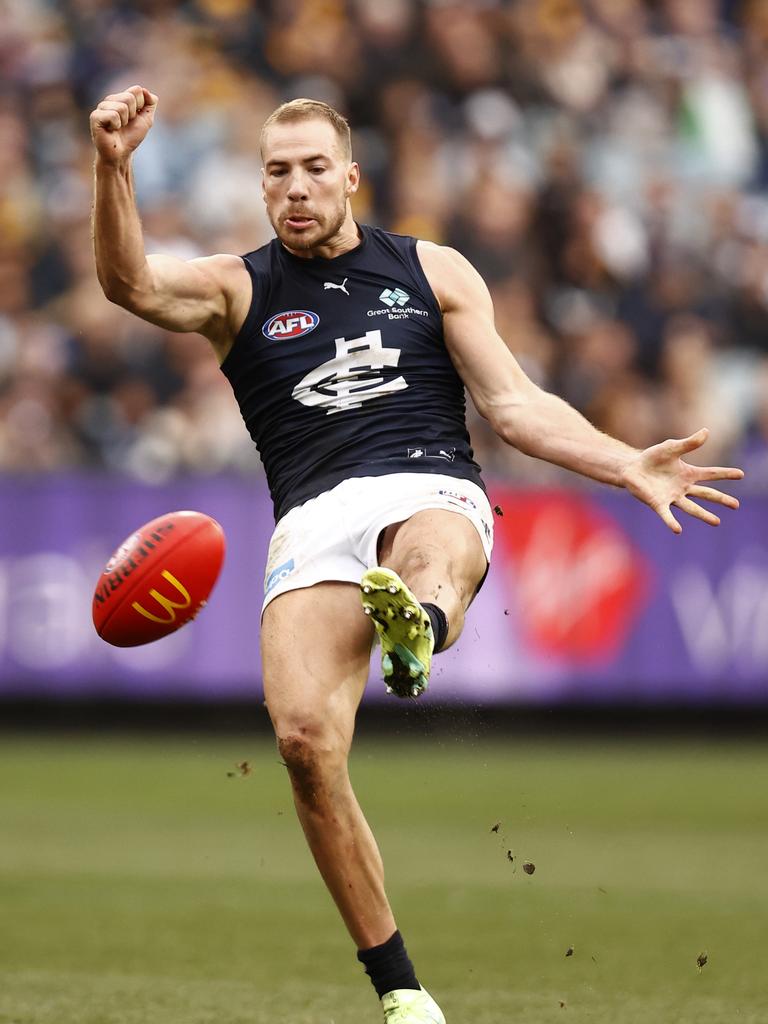
It’s not always the key forward who is the best kick at goal. If I could give the ball to any player in a close game, it would be Doug Hawkins. He was the greatest kick I’ve ever seen.
Peter Sumich at West Coast, kicked 111 goals 89 points in 1991, but the stats didn’t include out-on-the-fulls. If we needed to win, and the kick had to come from outside 50, give it to Peter Sumich no doubt. But closer in, and his left foot wasn’t as reliable.
I’d almost say the same about Joe Daniher today.
By focusing on distance, they take away the posts and narrow their vision down to a single point. Lockett, Hudson, Jason Dunstall, and Buddy Franklin, from 50-metres plus, had a regimented run up, and great leverage to get the ball to travel the distance.
Closer in, like Sumich and Daniher, the more there is to think about, so the greater the chance of missing. Unfortunately, that has seeped into Harry McKay’s game too.
Midfielders come half-forwards, have the ability to win the ball and finish with a goal.
Around the ground they rarely miss a target, but for some reason, some of them just can’t get the job done in front of goals. Nat Fyfe is one of them. Christian Petracca is heading in the same direction. It deters from how they are ultimately rated as a player.
The go-to player as we speak is Cody Weightman. He has confidence in his own goal-kicking ability, and his Bulldogs teammates have confidence in him. I wonder if they have the same confidence in Aaron Naughton?
Once you lose confidence in yourself, your teammates lose confidence in you.
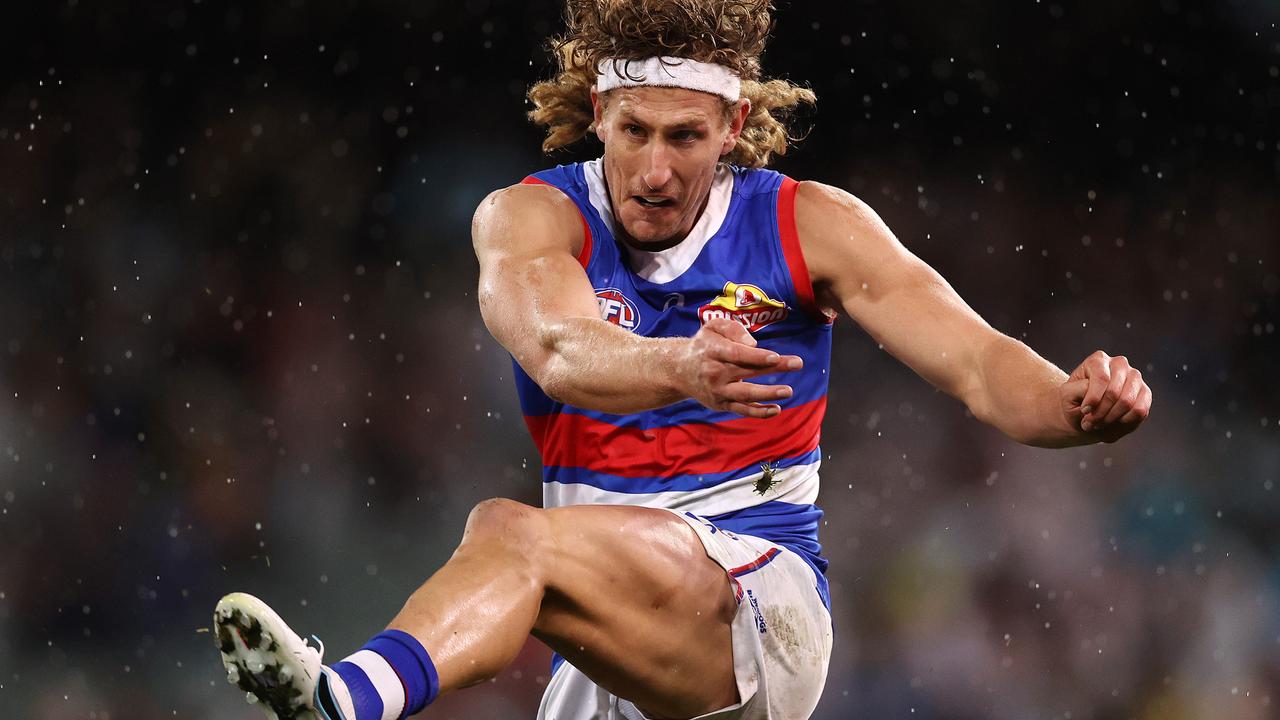
It’s a hidden reaction in the mind, but over the journey players won’t tell you that they are ignoring a leading forward, instead, instinctively look for a better option. If a player continually lets the team down, subconsciously they will pay a price as teammates hesitate to deliver them the ball.
They work hard to get the ball to the forwards, and it’s their job is to kick the goal.
In Richmond’s recent premierships, the Tigers’ delivered the ball with confidence to Jack Riewoldt and Tom Lynch. For such a long time at Geelong, Tom Hawkins has been the capable and reliable target, and now Jeremy Cameron, post GWS, too.
I’ll always remember Chris Tarrant kicking a goal after the siren to beat Adelaide and end a five-game Collingwood losing streak in 2003. Jack Anthony’s goal in the dying seconds against the Crows to win the semi-final in 2009. And Anthony Rocca’s 75-metre bomb to seal the Pies’ fate in the 2002 preliminary final.
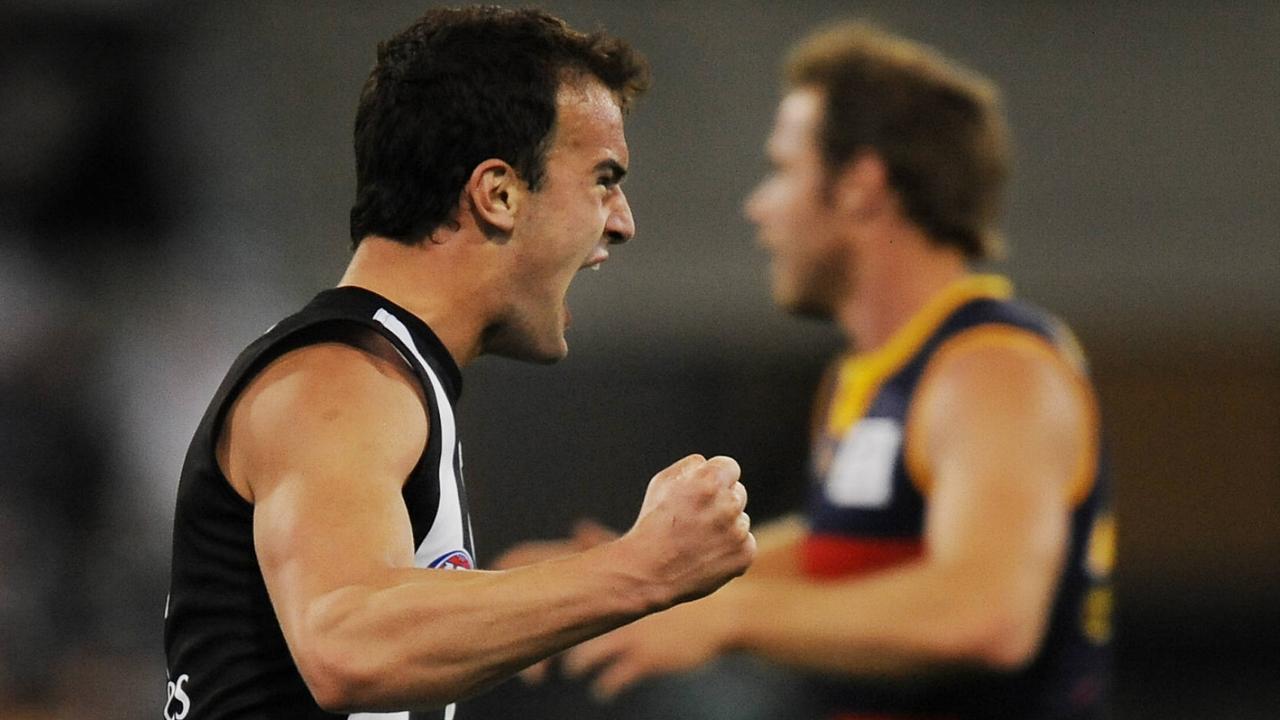
I’ll also never forget the three drawn finals I’ve been involved in, and how they really could have gone either way.
In the 1990 semi-final between West Coast and Collingwood, Peter Sumich took aim from a very difficult angle, and kicked a point to level the scores. The draw meant the game was replayed the following week and the Pies beat us. Maybe the extra, unexpected week off threw Essendon off-kilter and helped Collingwood win the 1990 premiership. We’ll never know. I just remember the miss.
Collingwood drew again with West Coast at Subiaco Oval in 2007, in a grind. The Pies went on and won handsomely in time-on, with three goals (Chris Bryan, Scott Pendlebury and Dane Swan) when it counted, to two Eagles behinds.
And in the 2010 grand final against St Kilda we didn’t capitalise on our shots at goal, kicking 9.14, and almost paid a horrible price. Lenny Hayes’ huge kick out of the centre bounced through for a behind at the 29-minute mark of the final term to level the scores. Thankfully we had the chance to redeem ourselves, and did.
Not everyone gets that chance, so it’s better to make the most of your opportunities the first time. Easier said than done, from a back pocket with 15 VFL career goals to his name.





